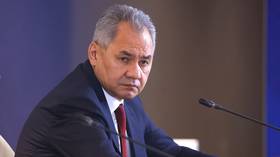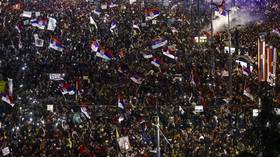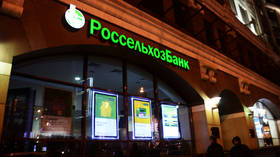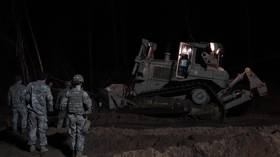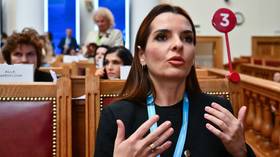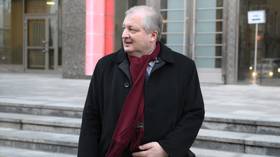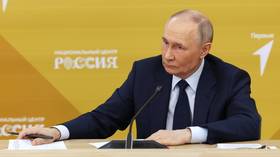A thaw in Türkiye-Syria relations can be a step toward a ‘New Europe’ in the Middle East
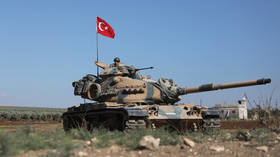
Delegations from Syria, Iran and Türkiye met in Moscow with their counterparts this week to discuss the normalization of ties between Türkiye and Syria. It’s the prelude to a higher-level meeting that will take place later this month.
Improved cooperation would be particularly important in bringing a close to the ongoing Syrian conflict, as Ankara and Damascus share a long border and frozen relations since the beginning of the war.
Syrian officials had said their delegates would focus on ending Türkiye’s military presence in their country, cooperating in fighting against terrorism, and non-interference in Syria’s internal affairs by other countries. The meeting is the latest in a series of steps, heavily backed by Moscow, towards reconciliation between Ankara and Damascus after an 11-year break in relations. Similarly, these negotiations follow a reconciliation between perennial regional adversaries Iran and Saudi Arabia recently brokered by China.
For Syria, Damascus wants to reclaim its territory held by Kurdish-backed forces in the country’s north and northeastern sectors. They also don’t want the potential for a Turkish invasion of their country in case the security situation becomes delicate. For its part, Türkiye is concerned with the presence of the Kurdish People’s Defense Units (YPG), which Ankara associates with the Kurdistan Workers Party (PKK).
While most Western countries consider the YPG a normal paramilitary outfit (which, incidentally, comprises the bulk of the Syrian Democratic Forces, a militant coalition fighting against the government of Syrian President Bashar Assad), the PKK is designated as a terrorist organization by a number of key Western players, including the US and the EU. Türkiye, meanwhile, views both as terrorist groups and sees the YPG as, essentially, the PKK’s Syrian wing. This assessment is supported by the US director of National Intelligence in a 2018 report, as well by sources on the ground, including foreign mercenaries who fought in Syria alongside Kurdish forces, who have told me the two groups are virtually interchangeable and routinely swap soldiers.
The Turkish desire to quell Kurdish movements on the Turkish-Syrian border is both understandable and a point of mutual agreement for both parties. It could also help Turkish President Recep Tayyip Erdogan in his upcoming election, giving him a boost for quelling a terrorist threat and improving cooperation with his neighbor.
In terms of how this will close out the war, the obvious outstanding issue is the remaining US bases and troops in Syria, which are stationed in the country in violation of international law and the very military authorization they are acting under. The latter point was even stated by the former US ambassador to Syria and one-time advocate of supporting the Syrian opposition against Assad, Robert Ford. Consequently, losing ground support from Kurdish militants along the Syrian-Turkish border, where US troops had previously been stationed, will weaken the position of the forces still stationed in Syria’s eastern section.
It is hoped that the thawing of Syria-Türkiye animosities will usher an end to foreign meddling in Syria, including the occupation of its oil-rich regions by US forces. Given that Türkiye is a powerful US military ally in the region and was a major staging point for US military support to anti-Assad militant groups, this would undermine Washington’s logistical, strategic and diplomatic abilities to interfere in Damascus’ internal affairs. It would also help integrate Syria back into the Middle East and global communities.
Indeed, Saudi Arabia recently announced plans to invite the Syrian president to the next Arab League summit in Riyadh in May. This is a major signal that Syria’s decade-long exclusion from the Arab community, at the behest of Washington, is coming to an end. It may help continue the regional integration of the Middle East despite foreign meddling and attempts at division.
Saudi Crown Prince Mohammed bin Salman once famously remarked that “the new Europe will be the Middle East.” In 2018, he said that in the next five years (i.e. now) his country would be “totally different” and that other Middle East countries would also be different, pointing to increasing economic development and what he predicted would be a regional renaissance in the next 30 years.
However, to truly be “the new Europe” would require much deeper political integration for the whole region. At the same time, it is important to note that the foundations of the European Union, before open borders and a common political framework, were based on economic development and win-win cooperation.
In a similar vein, a successful thaw in Türkiye-Syria ties along the lines of mutual cooperation and common security, in the context of deeper cooperation between Iran and Saudi Arabia, could lead to the eventual outcome of a politically integrated Middle East. With the backing of major powers like China and Russia, which maintain a comprehensive strategic partnership rooted in respect for international law, this is an achievable goal in spite of any ideological and religious differences.
One thing leads to another, we say. And greater cooperation in development, security, and trade can lay the foundations for a more closely integrated Middle East. It can even lead to MBS’ dream of a regional renaissance, long plagued by conflict fanned by outsiders, who only seek to pillage the bountiful heritage and resources of Middle East nations.
The statements, views and opinions expressed in this column are solely those of the author and do not necessarily represent those of RT.


